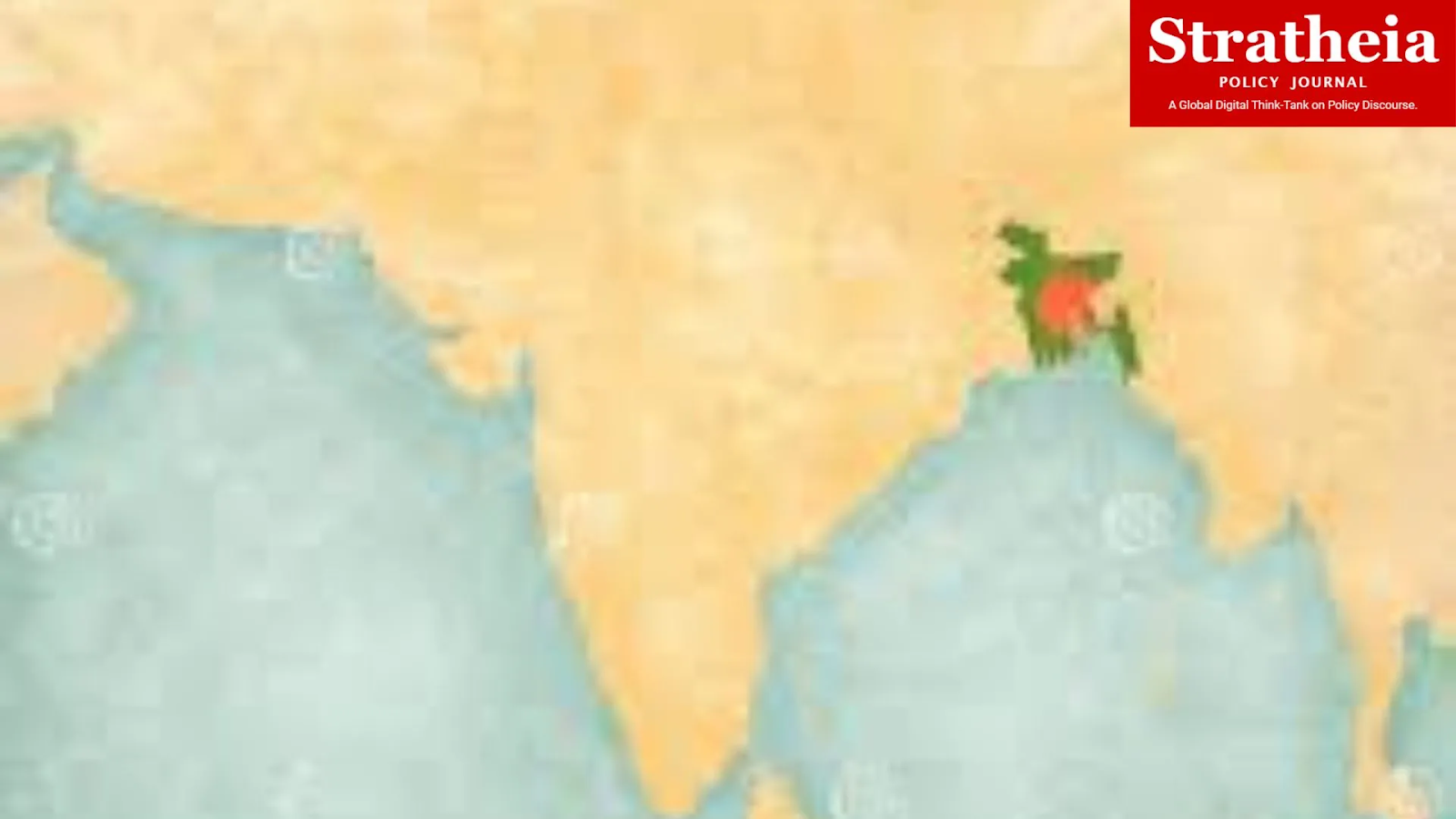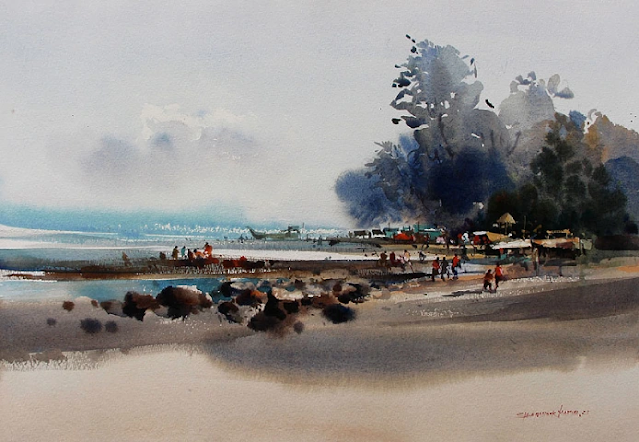After the air strikes in Kashmir, when a full-scale conflict erupts between Pakistan and India, what should be the official stance of Bangladesh?
In 53 years, Bangladesh has not waged any war with its neighbors, Myanmar and India. Other South Asian countries are hundreds of kilometers away. Therefore, there has not been any issue with these countries.
No denying, Bangladesh-India, Bangladesh-Myanmar had engaged in border skirmishes and were quickly resolved at the border guards force level.
Bangladesh’s military is not a fighting force. Accordingly they are trained as a defensive force. The military is being prepared for peace-keeping missions under the United Nations deployment in countries troubled by militancy and rogue warlords.
Bangladesh, India, and Pakistan are significant troop contributors to UN peacekeeping missions, with Bangladesh and India consistently ranking among the top three globally.
Bangladesh has a strong history of contributing to UN peacekeeping, with 6,772 peacekeepers deployed in 58 missions across 40 countries since 1988. They are currently among the top troop-contributing nations.
A few days ago, The Economic Times, an Indian publication picked up an irrelevant content, from a social media post by a former Bangladesh military officer and close aide of Chief Adviser Muhammad Yunus has suggested that Dhaka should collaborate with China to occupy India’s northeastern states if it attacks Pakistan in response to the Pahalgam terror attack.
Moments later, the Interim Government distanced itself from Major General (R) ALM Fazlur Rahman's remarks on his social media account.
Distancing itself from the former army officer’s remarks, Bangladesh’s Ministry of Foreign Affairs in a media release said, “The comments do not reflect the position or policies of the government of Bangladesh, and as such, the government neither endorses nor supports such rhetoric in any form or manner.”
By the way, China has never fought a war except for border clashes with 14 neighbors that it shares a border with, including India. China has border disputes with Nepal, Bhutan and Pakistan in South Asia.
Abhijeet Sen wrote for Godi Media, india.com, that in the case of a conflict, it will be interesting to see how the neighboring countries of India, such as China, Sri Lanka, Nepal, Maldives, Bangladesh, and Bhutan, will react and choose sides.
Sen believe that Bangladesh would fish in murky water during the Indo-Pak conflict and will take an opportunity to invade North East India with the military support of mighty China. He is forgetting that the Seven Sisters have recently ended their decades-old separatist insurgency by several ethnic groups.
Bangladesh is literally a homogeneous nation having language nationalism as a binding factor. They possess a unique culture, tradition, heritage, and history. Most importantly, the majoritarian are Muslims.
The North East Indian states have hundreds of languages spoken by ethnic communities and are divided among Hindu, Christian, Buddhist, animist identity and a negligible Muslim population.
Bangladesh military adventurism in the Northeast would be suicidal in an unknown hill-forest terrain, which would jeopardize the geopolitical landscape of the region.
Nevertheless, the former ethnic combatants trained in military-grade weapons would violently resist the occupation.
The nation has witnessed brutality during the nine-month independence war in 1971. An estimated 3 million were martyred, one million became war refugees, 500,000 were victims of rape as weapon of war and another 3.5 million were internally displaced.
The social media are flooded with nationalistic rhetoric, which goes against the spirit of the liberation war of 1971. The post reminds the audience that Bangladesh is a pacifist nation and pursues a ‘no war’ policy.
Afroja Shoma, a teacher of Media Studies at a private university, posted on Facebook: We are tomatoes, not India/Pakistan lovers or haters.
Political activist Hasnat Quaiyum, a member of Rastra Songskar Andolon (Movement for Reforms of the Country), urged that Bangladesh, under any excuse, should get involved in the Indo-Pak war.
Nevertheless, the Bangladesh constitution outlines specific provisions regarding war and peace, emphasizing the renunciation of force in international relations and prioritizing peaceful resolutions.
Article 63 states that war cannot be declared or the country participate in war without the Parliament’s assent. Furthermore, Article 25 mandates that the state’s foreign policy be based on the principles of renouncing force, supporting the right of self-determination, and upholding the right of oppressed people to struggle against imperialism and colonialism.
However, Article 25 also supports international solidarity with oppressed peoples in their struggle against imperialism and colonialism.
Finally, the constitution implicitly prioritizes peaceful resolutions to conflicts, as evidenced by the renunciation of force and the emphasis on international solidarity and support for self-determination.
Bangladesh must prepare carefully for all possible scenarios while remaining steadfastly neutral and committed to peace. At the same time, it is in the collective interest of the region that India and Pakistan recognize the futility of further escalation and work toward resolving their differences through peaceful means. The future prosperity and stability of South Asia depend on it, writes Mir Mostafizur Rahaman in the Financial Express, published from Dhaka.
Bangladesh authorities, before speaking their mind, are feeling the pinch in their shoes. The Dhaka stock market witnessed a major decline this morning (7 May) due to the India-Pakistan war. The main index fell by more than 70 points in the first 10 minutes of trading. The index fell by more than 50 points in the first five minutes. The downward trend continues.
Ramisa Rob is the Geopolitical Insights Editor at The Daily Star, writes: Needless to say, both nations must urgently engage in de-escalation. But the political reality of de-escalating the current volatile situation between India and Pakistan is much easier said than done. There’s little precedent that the nuclear-armed nations would spike a hot war; however, the short- and long-term stability in South Asia after the deadly Pahalgam attacks appears bleaker than ever before.
First published in the Stratheia Policy Journal, Islamabad, Pakistan, on 8 May 2025
Saleem Samad is an award-winning independent journalist based in Bangladesh. A media rights defender with the Reporters Without Borders (@RSF_inter). Recipient of Ashoka Fellowship and Hellman-Hammett Award. He could be reached at saleemsamad@hotmail.com; Twitter (X): @saleemsamad









